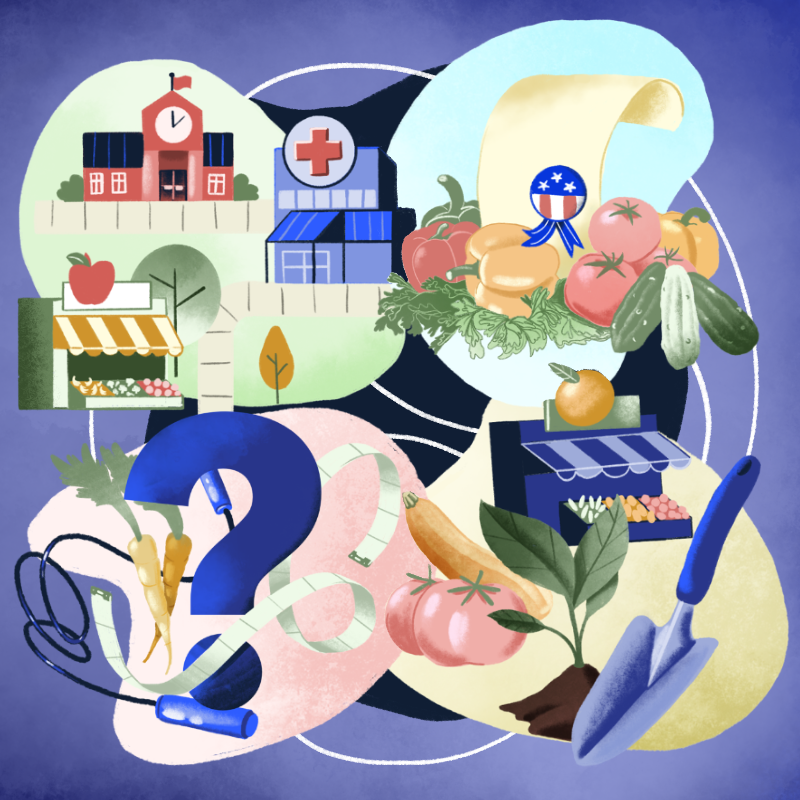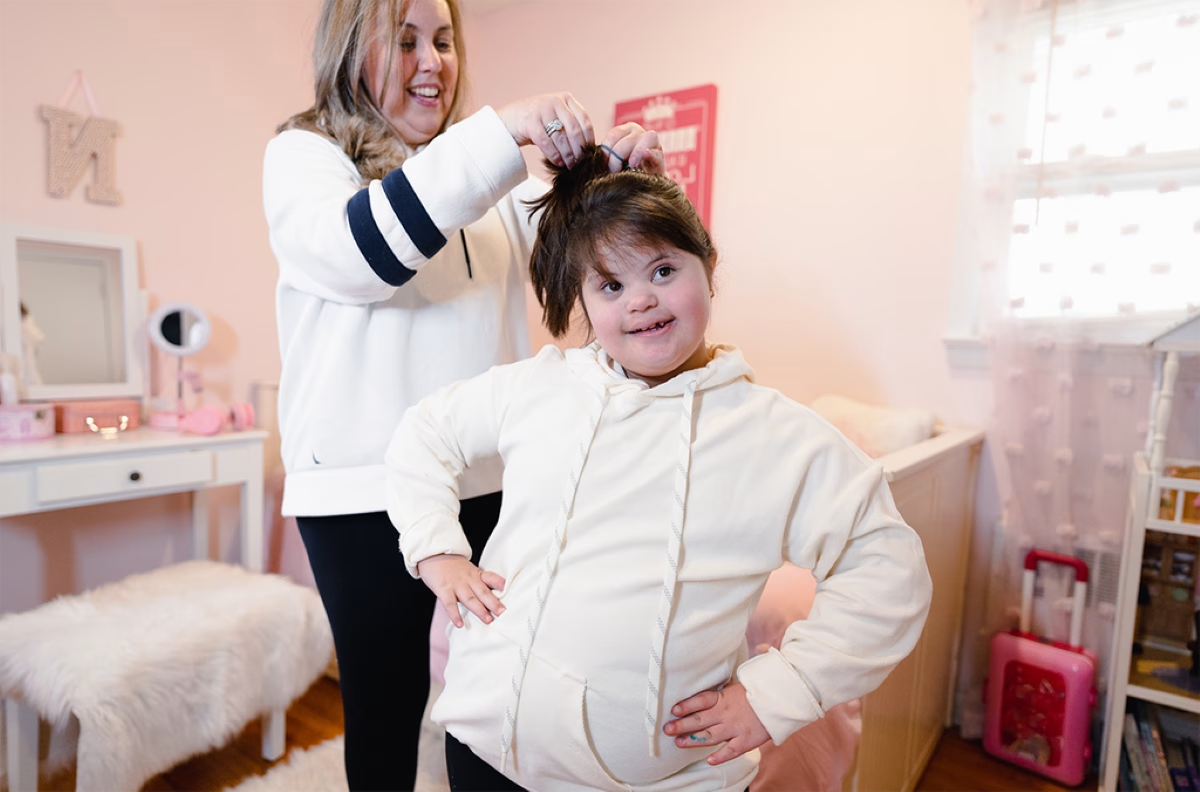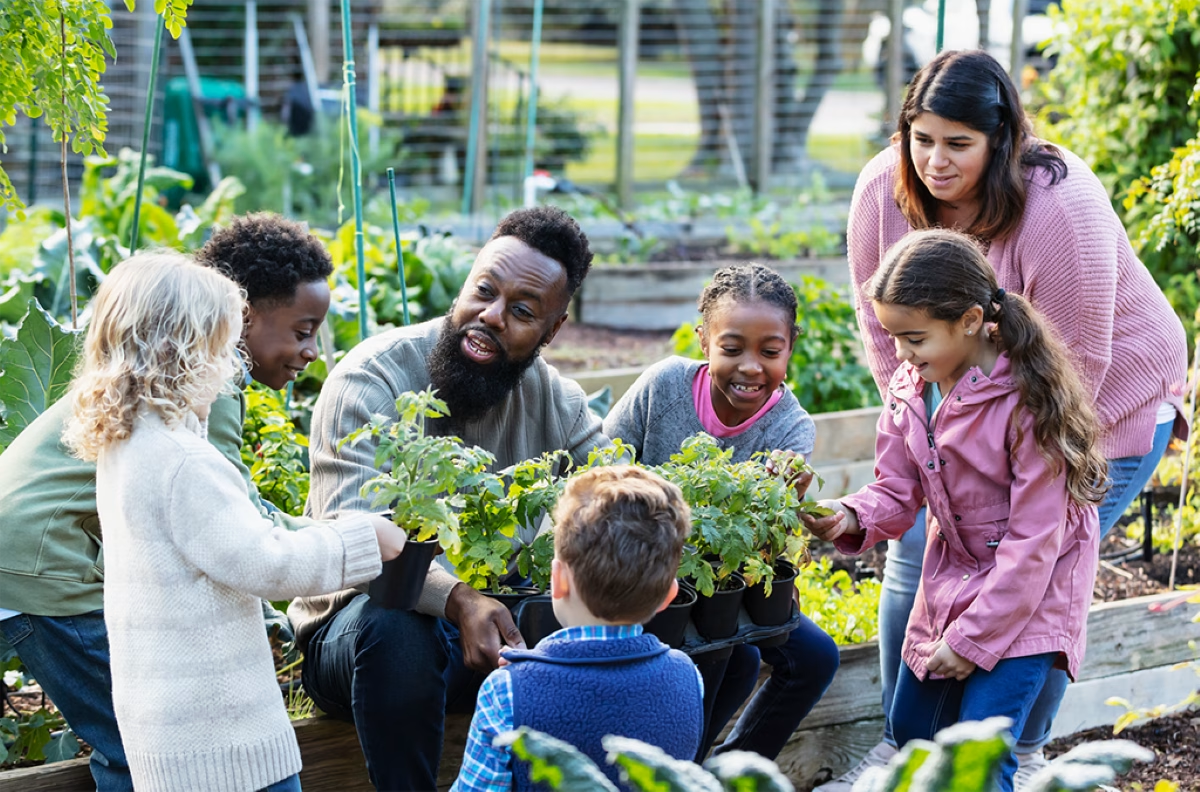Through its Community Food Systems Fellowship, Vital Village Networks is creating opportunities for emerging leaders who are committed to justice, equity, and improving their local food systems to promote health. Fellows engage in a peer-led space that supports them to think creatively about hunger, food insecurity, land access, and other challenges their communities are grappling with, and what it would take to achieve transformative change—not only as individual agents of change, but as a movement of grassroots leaders across the country committed to expanding agency and ownership of local food systems.
The program provides community leaders and leaders of color with the resources they need to learn from and with one another. It’s designed to lift up the capacity of historically excluded groups, elevate their voices, and strengthen practices to engage their communities in building a food system that honors their ability to live a full and thriving life.
These fellows, based around the country, are building more equitable, sustainable food systems in many different ways. While each fellow has a unique approach, a vision shared by all is honoring the dignity of every member of our food system—from our farm and factory workers to every child who eats a school lunch—and redesigning a system that meets their needs. Meet the fellows and learn more about their work!



